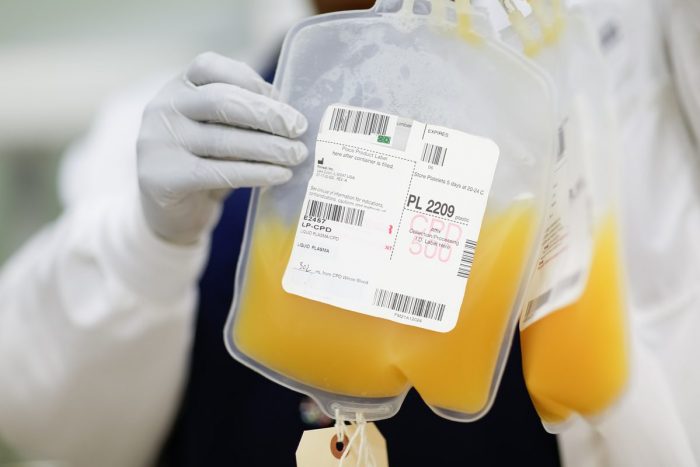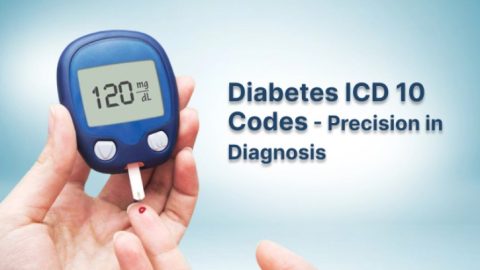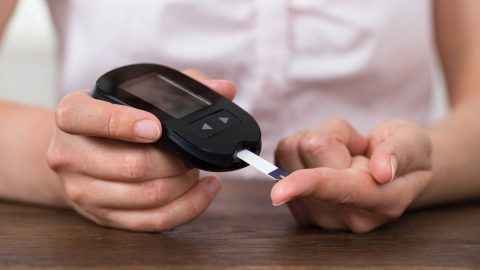If you have diabetes, you might have wondered whether you’re allowed to donate plasma. It’s a common question — especially since plasma donations are an important way to help others while also earning compensation in some donation centers. However, the answer isn’t entirely simple. Whether you can donate depends on the type of diabetes you have, your treatment plan, and your overall health condition at the time of donation.
Plasma donation plays a vital role in modern medicine. The plasma collected from donors helps create life-saving treatments for people with immune disorders, hemophilia, and other chronic illnesses. So, if you live with diabetes but maintain stable blood sugar levels, your contribution could still be possible — and meaningful.
In this article, we’ll uncover the real facts about plasma donation for diabetics, explore eligibility requirements, explain how medications like insulin affect donation, and discuss what precautions you should take before, during, and after donating plasma.
Understanding Plasma Donation

What Is Plasma and Why Is It Important?
Plasma is the yellowish, liquid component of blood that makes up more than half of its total volume. It’s rich in proteins, antibodies, and clotting factors, which are essential for regulating blood pressure, supporting immune function, and helping blood clot properly.
When you donate plasma, it is separated from your red and white blood cells through a process called plasmapheresis. The remaining components are returned to your body, while the plasma is collected for medical use.
Plasma donations are crucial for producing therapies that treat patients suffering from immune deficiencies, burns, liver disease, and bleeding disorders. Because plasma cannot be synthetically manufactured, donors are indispensable.
How Plasma Donation Works
The plasma donation process typically takes about 1 to 1.5 hours. During the session, your blood is drawn from one arm, processed through a centrifuge machine to separate plasma, and then the red blood cells are returned to your body.
Before you donate, staff will check your blood pressure, pulse, temperature, and protein levels. You’ll also be asked about your medical history, including diabetes management. These checks ensure both donor safety and the quality of the plasma collected.
Can People With Diabetes Donate Plasma?
The Short Answer
Yes — people with diabetes can donate plasma, but only if their condition is well-controlled. Your eligibility depends on your current health status, blood sugar stability, and the type of medication you’re using.
If you manage diabetes through diet, exercise, or oral medications, you are often eligible to donate plasma. However, if you rely on insulin injections, some plasma centers may restrict or disqualify you, depending on internal guidelines or local regulations.
Type 1 vs. Type 2 Diabetes: Key Differences
People with Type 1 diabetes rely on daily insulin injections to regulate blood glucose. Because of potential fluctuations in insulin levels and glucose control, Type 1 diabetics may face stricter donation requirements.
In contrast, those with Type 2 diabetes, who may control their condition through oral medications or lifestyle management, often qualify more easily — especially if they maintain stable glucose readings and overall good health.
It’s important to note that eligibility criteria vary from one plasma donation center to another, so it’s best to contact your local facility directly before scheduling an appointment.
Plasma Donation Requirements for Diabetic Donors
General Eligibility Criteria
To donate plasma, all donors — diabetic or not — must meet the following basic requirements:
- Be at least 18 years old
- Weigh 110 pounds (50 kg) or more
- Pass a physical health screening
- Have normal blood pressure and pulse rate
- Be free from active infections or recent surgeries
- Provide valid identification and medical history
If you have diabetes, additional questions will be asked about your blood sugar control, medications, and overall management plan.
Specific Rules for Diabetic Donors
If you’re diabetic, plasma donation centers will likely assess the following factors:
- Blood Sugar Control:
Your blood glucose levels should be within a healthy range on the day of donation. If your sugar is too high or too low, your donation might be deferred for safety reasons. - Medications Used:
Certain medications are acceptable (like metformin or glipizide), while others may raise concerns. Insulin users can sometimes donate, but eligibility depends on dosage and regulation stability. - Absence of Complications:
Donors with severe diabetic complications, such as neuropathy, retinopathy, kidney disease, or heart problems, are often ineligible due to health risks. - Wound Healing Ability:
Diabetes can affect circulation and slow wound healing, which is another factor centers consider to ensure your safety during and after donation.
Can You Donate Plasma If You Take Insulin?
The Controversy Around Insulin and Plasma Donation
The biggest question for many diabetics is whether insulin users can donate plasma. The answer depends on where you live and the type of insulin used.
Some older insulin formulations were derived from animal sources (bovine or porcine insulin), and these are generally not accepted due to potential risks of transmitting infections like Creutzfeldt-Jakob disease.
However, modern synthetic human insulin (such as Humalog, Novolog, or Lantus) does not pose this risk. Therefore, some donation centers will allow insulin users to donate as long as their diabetes is stable and well-controlled.
What Plasma Centers Typically Check
If you use insulin, the donation center will review:
- Type of insulin (human or animal-derived)
- Dosage and stability of your treatment plan
- Recent blood sugar records
- Medical clearance from your doctor, in some cases
If you can provide documentation proving your diabetes is under control, you may still be eligible to donate at many plasma centers.
Common Plasma Center Policies for Diabetic Donors
Every plasma donation organization sets its own rules. Below is a general summary of how major U.S. donation networks typically handle diabetic donors:
| Plasma Donation Center | Policy for Diabetics |
|---|---|
| BioLife Plasma Services | Accepts diabetic donors with stable blood sugar; insulin users reviewed case-by-case |
| CSL Plasma | Accepts donors with controlled diabetes using approved medications |
| Grifols Plasma | Allows diabetic donors if condition is stable and medications are safe |
| Octapharma Plasma | Accepts controlled diabetics; insulin use may require additional evaluation |
| KEDPlasma | Requires doctor approval for insulin-dependent donors |
It’s always best to call ahead and confirm your eligibility before your visit.
How to Prepare for Plasma Donation with Diabetes
Step 1: Check Your Blood Sugar Levels
Ensure your glucose level is within your target range before donating. If your blood sugar is unstable or you’ve had recent fluctuations, it’s safer to postpone your donation until your condition is steady.
Step 2: Eat a Balanced Meal Before Donation
Avoid donating on an empty stomach. Eat a meal rich in lean proteins, complex carbs, and healthy fats about 2–3 hours before your appointment. This helps stabilize blood sugar and prevents dizziness or fatigue afterward.
Step 3: Stay Hydrated
Plasma is about 90% water, so staying hydrated is crucial. Drink plenty of fluids (especially water) in the 24 hours leading up to your appointment. Avoid sugary drinks and alcohol.
Step 4: Bring Your Medications and Health Information
Always inform staff about your medications and diabetes management plan. Bring a list of prescriptions or a doctor’s note if necessary. This transparency helps the center ensure a safe donation process.
Step 5: Monitor Your Health After Donation
After donating plasma, check your blood sugar regularly for the next 24 hours. Eat nourishing meals and rest if you feel tired. Mild lightheadedness or fatigue is common but should subside quickly.
Potential Risks and Side Effects for Diabetic Donors
Short-Term Effects
Even though plasma donation is safe for most people, diabetics may experience additional symptoms if not careful, including:
- Temporary dizziness or weakness
- Mild dehydration
- Low blood sugar (hypoglycemia)
- Bruising at the needle site
To reduce these risks, always eat before donating, avoid overexertion, and monitor your glucose throughout the day.
Long-Term Considerations
If you donate plasma frequently (twice a week is the typical limit), it’s essential to maintain nutrient balance and avoid dehydration. Repeated donations may affect protein levels, which are important for wound healing — something diabetics should monitor closely.
Always consult your doctor or endocrinologist before establishing a regular plasma donation routine.
Benefits of Donating Plasma (Even with Diabetes)
While it’s important to prioritize your health, donating plasma can offer benefits beyond helping others:
- Emotional satisfaction from contributing to life-saving therapies
- Increased health awareness from regular screenings at plasma centers
- Community connection through giving back to others
- Potential compensation at licensed donation centers
Many diabetic donors report feeling empowered and proud knowing that their plasma supports the development of treatments for others in need.
Who Should Avoid Donating Plasma?
Even if your diabetes is under control, you may be asked to defer donation temporarily or permanently if you have:
- Uncontrolled blood sugar or recent hypoglycemic episodes
- Infections or recent antibiotic use
- Heart disease or kidney complications
- Severe diabetic neuropathy or retinopathy
- History of fainting during blood draws
- Recent surgery or open wounds
These conditions can increase the risk of adverse reactions during or after the donation. Always prioritize your well-being above all.
Tips for a Safe Donation Experience
Here are some additional tips for diabetic donors:
- Avoid donating if you skipped a meal or took insulin without eating.
- Bring a glucose meter to check your sugar levels before and after donation.
- Carry snacks like granola bars or fruit juice to quickly correct low blood sugar.
- Rest afterward and avoid strenuous physical activity for several hours.
- Rehydrate with water and electrolytes to replace fluids lost during donation.
FAQs About Plasma Donation and Diabetes
Can I donate plasma if my blood sugar is high on the day of donation?
If your blood sugar is above the normal range, most centers will postpone your donation. Elevated glucose can affect plasma quality and increase the risk of adverse effects during the process.
Can I donate plasma if I take metformin?
Yes. Metformin is one of the most common diabetes medications, and it doesn’t disqualify you from donating plasma. As long as your diabetes is under control, you are typically eligible.
Does plasma donation affect blood sugar?
Donating plasma does not directly change blood sugar levels, but skipping meals, dehydration, or stress can cause fluctuations. Always eat and hydrate properly before donating.
How often can diabetics donate plasma?
Most centers allow donations up to twice a week, with at least 48 hours between sessions. However, diabetic donors should consult their doctor before donating this frequently.
Can I donate blood instead of plasma?
Yes — if your diabetes is stable and you meet other requirements, you can often donate whole blood as well. The same principles apply regarding sugar control and medication safety.
The Bottom Line: Yes, But With Caution
So, can you donate plasma if you have diabetes?
The answer is yes — in most cases, you can, as long as your condition is well-managed and stable.
If you have Type 2 diabetes controlled by oral medications or lifestyle, you’ll likely be approved to donate. If you use insulin, your eligibility depends on the type of insulin, your blood sugar control, and the specific policies of your plasma center.
Always remember: your health comes first. Talk to your doctor, monitor your glucose, and choose a reputable donation center with medical supervision. With the right preparation and care, donating plasma as a diabetic can be a safe and rewarding experience.
Disclaimer: This article is for informational purposes only and should not be considered medical advice. Always consult with a qualified healthcare provider before making decisions related to plasma donation, diabetes management, or changes to your medication regimen.


